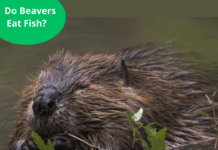
Introduction about Canine Health:
In many homes, dogs are cherished as loyal companions, earning the title of man’s best friend. Their Canine Health and well-being are paramount, yet understanding canine health can be overwhelming. In this all-encompassing guide, we tackle common queries concerning dog health, from nutrition to behavior, providing essential insights for every dog owner’s peace of mind in this comprehensive Dog Health Guide.
1. The Intricacies of Canine Reproduction
Understanding the process of canine reproduction is vital for responsible pet ownership. When a male dog mates with a female, the act of copulation involves the transfer of sperm from the male to the female’s reproductive tract, where fertilization takes place if conditions are optimal in this Canine Health Guide.
2. Debunking the Myth: Why Schnauzers Deserve Love
Despite misconceptions, schnauzers are far from being the worst dogs. These intelligent and loyal companions can make wonderful pets when provided with proper training, socialization, and Canine Health.
3. Unveiling Canine Terminology: What to Call Male Dogs
Male dogs are commonly referred to as simply “dogs.” However, in breeding contexts, they may be referred to as “studs.” Neutering, the surgical removal of a male dog’s testicles, is often recommended for population control and behavioral management in this Canine Health Guide.
4. Dietary Deliberations: The Safety of Turkey Necks for Dogs
Turkey necks can be a nutritious addition to a dog’s diet when cooked thoroughly and served in moderation. However, caution must be exercised to prevent choking hazards and intestinal blockages, especially when it comes to bone consumption in this Canine Health Guide.
5. Exploring Canine Cuisine: Can Dogs Enjoy String Cheese?
String cheese can serve as a tasty and protein-rich treat for dogs in small quantities. However, it’s essential to consider their lactose tolerance and to avoid overindulgence to prevent digestive issues in this Canine Health Guide.
6. Granola and Canines: A Nutritional Analysis
Granola, often containing nuts and dried fruits, may not be the best choice for dogs due to potential harmful ingredients. While plain, unsalted granola in small amounts may be safe, it’s advisable to opt for dog-specific snacks to ensure a balanced diet in this Canine Health Guide.
7. The Safety of Herbs: Basil and Dogs
Basil is generally safe for dogs and may even offer health benefits such as anti-inflammatory properties. Nevertheless, as with any new food introduction, it’s recommended to introduce basil gradually and monitor for adverse reactions in this Canine Health Guide.
8. Can Dogs Contract Mono?
While dogs can carry viruses similar to mononucleosis found in humans, such as the Epstein-Barr virus, true infectious mononucleosis is rare in dogs. However, they may exhibit symptoms resembling the condition, including lethargy and swollen lymph nodes, from other viral infections in this Canine Health Guide.
9. Understanding Bordetella: A Common Respiratory Infection in Dogs
Bordetella bronchiseptica is a bacterium responsible for causing kennel cough, a highly contagious respiratory infection in dogs. Vaccination and proper hygiene practices are crucial for preventing its transmission, especially in environments where dogs congregate in this Canine Health Guide.
10. Compassionate Choices: Euthanasia Considerations for Dogs with Liver Failure
Liver failure in dogs can lead to significant discomfort and a decline in quality of life. Knowing when to consider euthanasia is a difficult but important decision that should be made in consultation with a veterinarian, taking into account the dog’s overall well-being and prognosis in this Canine Health Guide.
11. Navigating Common Canine Illnesses: Symptoms and Treatments
Understanding common illnesses that affect dogs, such as parvovirus, heartworm disease,Canine diseases, and arthritis, empowers owners to recognize symptoms early and seek appropriate veterinary care. Treatment options may vary depending on the condition’s severity and the dog’s overall health.
12. The Importance of Regular Veterinary Check-ups
Regular veterinary check-ups are essential for maintaining a dog’s health and detecting any underlying issues early. Vaccinations, parasite prevention, dental care, and nutritional counseling are among the services provided during these visits, contributing to the overall well-being of the dog in this Canine Health Guide.
13. Behavioral Considerations: Addressing Anxiety and Aggression
Behavioral issues, including anxiety and aggression, can significantly impact a dog’s quality of life and the relationship with its owner. Understanding the root causes of these behaviors and implementing positive reinforcement techniques can help address and manage them effectively in this Canine Health Guide.
14. The Role of Exercise and Mental Stimulation
Regular exercise and mental stimulation are essential for a dog’s physical and mental health “Puppy care”. Engaging in activities such as walking, playing, and training not only provides physical exercise but also strengthens the bond between the dog and its owner in this Canine Health Guide.
15. Creating a Safe and Enriching Environment
Providing a safe and enriching environment is paramount for ensuring a dog’s well-being. This includes providing adequate shelter, nutrition, exercise, and mental stimulation, as well as minimizing exposure to potential hazards and toxins in this Canine Health Guide.
Conclusion
In conclusion, the experience of owning a dog is a rewarding journey filled with ups and downs. By exploring the nuances of dog health and well-being, we empower ourselves to offer our beloved companions the care and attention they need to thrive and live fulfilling lives by our sides in this Canine Health Guide.
FAQs
1. Can dogs eat human food?
- While some human foods are safe for dogs in moderation, others can be harmful or even toxic. It’s essential to research specific foods before offering them to your dog and consult with a veterinarian if you’re unsure.
2. How can I prevent my dog from gaining weight?
- Maintaining a healthy weight in dogs involves a balanced diet, regular exercise, and portion control. Avoid feeding table scraps and monitor treats, opting for low-calorie options when possible.
3. What should I do if my dog shows signs of illness?
- If your dog displays symptoms of illness, such as lethargy, vomiting, or diarrhea, it’s crucial to seek veterinary care promptly. Early intervention can prevent minor issues from developing into more serious conditions.
4. Is it necessary to brush my dog’s teeth?
- Yes, dental care is essential for maintaining a dog’s oral health and preventing dental problems such as tartar buildup, gum disease, and tooth decay. Regular brushing, along with dental chews and professional cleanings, can help keep your dog’s teeth clean and healthy.
5. Can dogs be allergic to certain foods?
- Yes, dogs can develop food allergies or intolerances to certain ingredients, such as grains, proteins, or additives. If you suspect your dog has a food allergy, consult with a veterinarian to determine the best course of action, which may include dietary changes and allergy testing.












